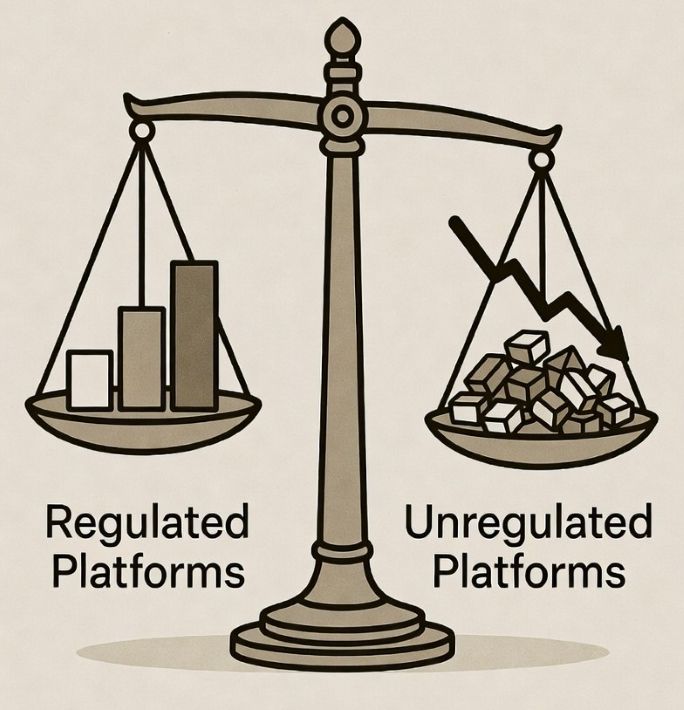Why Royal TV Could Become a Hidden Engine of Sports Betting Economy Growth

The fast growth of digital sports streaming has rearranged the financial structure of the sports industry. In this context, Royal TV (로얄티비) has the potential to change the relationship between customer engagement, the sports betting market, and streaming services.
With the provision of free live streaming services across several sports leagues and tournaments, Royal TV creates strong integration between viewing and betting on sports.
Sports betting customers need to respond to numerous changes to the betting odds, such as the ongoing flow of changes caused by shifting betting momentum, and respond to changes in the betting odds by making decisions informed by real-time data, and these decisions impact the betting odds.
Customers need to respond to numerous changes to the betting odds, such as the ongoing flow of changes caused by shifting betting momentum. Therefore, a platform that streams sports betting content removes the barriers between customers watching the game and betting on the game.
Sports Betting Engagement as a Catalytic Economic Factor
The core element of sports betting economics is engagement. The more viewers actively watching the game, the more betting activity occurs. This creates an ecosystem in which streaming services are able to develop a system of interconnected betting.
If a streaming service can offer a large audience, more engagement will lead to more betting activity, which will increase revenues for betting operators.
Real-time streaming technology reduces information asymmetry. Bettors are better able to assess their risk exposures in real time as live-streaming enables their observation of tactical adjustments, player fatigue, minute momentum shifts, etc.
This streaming technology leads to greater confidence in micro betting, in-play wagering, prop betting, and short time horizon predictions. As confidence in betting increases, so does the overall market size of the sports betting market.
Enhancing the Viewer-to-Better Conversion Funnel
The change from spectator to bettor is not immediate. It is a gradual process resulting from recurrent viewing, emotional involvement, and familiarity with the storyline. Sustained streaming of high-stake games enhances the emotional involvement of the viewer, and betting engagement with the games is likely.
Increased betting participation leads to greater turnover for licensed operators, increased tax revenue in regulated jurisdictions, and increased job opportunities in the data analytics, marketing, compliance, and finance domains.
The impacts of increased betting participation extend to the payment processing, affiliate marketing, and digital advertising public.
ALSO READ: Celebrating The Rise Of Mobile Gaming Bets As A New Chapter In Southeast Asia’s Gambling Boom
Data Flow and Market Efficiency
One more dimension that deserves better consideration is the speed with which data gets processed. The different streaming ecosystems give firsthand access to a new type of consumption metrics.
These types of metrics, while not showing the consumption of bets directly, can help with the modeling of odds and forecasting of demand. As better platforms improve their algorithms to model user consumption, the markets become better and more efficient.
This also means the markets become more efficient and better for more advanced users, which includes professional gamblers and data-centric investors. This in turn adds more liquidity to the markets.
Furthermore, the better and more consistent the viewership of a certain streaming platform is, the better and more sustainable the brand ecosystems that can be built around the associated leagues and tournaments.
This is because the ecosystem helps to sustain sponsorships, ad revenue, and other types of collab opportunities. In this regard, betting operators that are able to accurately target live stream audiences can create new opportunities for revenue generation and mutual growth.
The Quiet Multiplier Effect
Royal TV’s potential is not in direct gambling operations but in its multiplier possibility when it comes to democratized live sports streaming. By providing access to live sports, it expands the potential audience for betting.
When accessibility is provided, engagement is increased. When engagement is increased, wagering is increased. When wagering is increased, economic growth is achieved.
The growth and development in digital consumption and the gambling economy will be determined by the merging of entertainment and financial participation services.
The merging of sports betting and live streaming services will not only be based on the latest technology but will also introduce to the market innovative technologies that will transform and refine the processes involved in creating, distributing, and preserving value in modern sports commerce.






 In case you want more background, you may be interested in the post articles about the gaming industry, like “
In case you want more background, you may be interested in the post articles about the gaming industry, like “




 Always make sure that it is licensed by an established authority. On a vetted listing, only those that comply with legal gaming protocols are often listed, reducing the risk and maximizing trust.
Always make sure that it is licensed by an established authority. On a vetted listing, only those that comply with legal gaming protocols are often listed, reducing the risk and maximizing trust.
 Free sports streaming platforms have exploded in popularity, offering fans access to live games without the hefty price tags of traditional broadcasters. This shift is shaking up the sports economy, particularly the betting industry, which thrives on real-time engagement. But what does this mean for betting partnerships and sponsorships? Let’s dive into the transformation.Accessibility drives this revolution. Fans can access live matches and live score updates through platforms like Livescore138 (live skor). This democratization of access boosts viewership, especially among younger audiences who prioritize affordability. Consequently, betting platforms see a surge in active users, as free streaming fuels real-time wagering. For instance, in-play betting—where fans place bets during a game—has skyrocketed, with revenues projected to hit $12.37 billion in 2024. Yet, this increased engagement comes with challenges for betting operators accustomed to exclusive partnerships.
Free sports streaming platforms have exploded in popularity, offering fans access to live games without the hefty price tags of traditional broadcasters. This shift is shaking up the sports economy, particularly the betting industry, which thrives on real-time engagement. But what does this mean for betting partnerships and sponsorships? Let’s dive into the transformation.Accessibility drives this revolution. Fans can access live matches and live score updates through platforms like Livescore138 (live skor). This democratization of access boosts viewership, especially among younger audiences who prioritize affordability. Consequently, betting platforms see a surge in active users, as free streaming fuels real-time wagering. For instance, in-play betting—where fans place bets during a game—has skyrocketed, with revenues projected to hit $12.37 billion in 2024. Yet, this increased engagement comes with challenges for betting operators accustomed to exclusive partnerships.




 As a regulated online casino operator, Bet365 significantly contributes to government tax collections. These levies sponsor public services, including infrastructure, education, and healthcare.
As a regulated online casino operator, Bet365 significantly contributes to government tax collections. These levies sponsor public services, including infrastructure, education, and healthcare.

 In terms of revenue, the location may have a big impact on it. Take a look at Las Vegas and Atlantic City, the biggest gambling industries. Compared to the other gambling places in other regions, the two can generate more money. This is because a huge amount of people go to these cities every year as tourist hotspots.
In terms of revenue, the location may have a big impact on it. Take a look at Las Vegas and Atlantic City, the biggest gambling industries. Compared to the other gambling places in other regions, the two can generate more money. This is because a huge amount of people go to these cities every year as tourist hotspots.


 Casinos attract tourists, bringing a much-needed inflow of money to outside businesses, which helps the economy improve. Governments also benefit since they have tax authority over casino revenues. Fundamentally, changing this would significantly boost resources to fund significant projects, improve education, and provide better social support.
Casinos attract tourists, bringing a much-needed inflow of money to outside businesses, which helps the economy improve. Governments also benefit since they have tax authority over casino revenues. Fundamentally, changing this would significantly boost resources to fund significant projects, improve education, and provide better social support.
 Cash lottery in Indonesia was banned several decades ago; but the availability of online lottery sites allows lottery enthusiasts to stay hopeful. Even if there’s only one in a million chance of winning the major prize money, the idea of having that chance can make people optimistic about their future. While the prohibition of lottery in Indonesia is often explained as a measure of addressing a potential and strong connection to the so-called games of chance in
Cash lottery in Indonesia was banned several decades ago; but the availability of online lottery sites allows lottery enthusiasts to stay hopeful. Even if there’s only one in a million chance of winning the major prize money, the idea of having that chance can make people optimistic about their future. While the prohibition of lottery in Indonesia is often explained as a measure of addressing a potential and strong connection to the so-called games of chance in  Complaints about government nepotism, collusion and abuse of authority, as Suharto’s administration favored foreign investors but whose local projects were awarded exclusively to military officers; or to the minority Chinese Muslims doing business in Indonesia.
Complaints about government nepotism, collusion and abuse of authority, as Suharto’s administration favored foreign investors but whose local projects were awarded exclusively to military officers; or to the minority Chinese Muslims doing business in Indonesia.




